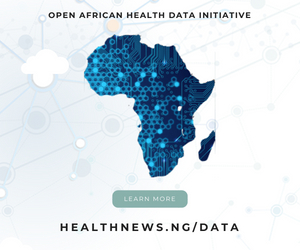This week marks the launch of BioCiTi, OneBio and The TechVillage’s first Immersion Bootcamp. BioCiTi is a specialised biotech (biotechnology) incubator established in collaboration with the Cape Innovation and Technology Initiative (CiTi) and OneBio.
The launch of the first cohort is a milestone for Africa’s biotech sector. It sets out to place the continent’s leading biotech startups on the same playing field as international biotechnology startups.
Nine of South Africa and Zimbabwe’s top early-stage biotech entrepreneurs are participating in an intense six-month development training programme at the Cape Innovation and Technology’s Woodstock Bandwidth Barn in Cape Town.
Biotech is a key tech cluster for the Cape Innovation & Technology Initiative. Its incubation programme, BioCiTi, is being run in partnership with OneBio and The TechVillage.
The programme is also supported by the Centre for Proteomic and Genomic Research (CPGR), the Finnish government through their Southern African Innovative Support (SAIS) initiative and the South African government’s Small Enterprise Development Agency (SEDA).
“CiTi sees a lot of opportunities in biotech to catalyse the sector,” says Ian Merrington, CEO of Cape Innovation & Technology Initiative. “There is a lot of nascent activity in the country and Africa, but not much of it comes to fruition in a commercial sense or from the perspective of being able to take it to market and scale. The launch of the BioCiTi incubator continues CiTi’s increased focus on specialised incubation.”
According to Dr Nick Walker, co-founder of OneBio, biotech was previously the domain of big pharmaceutical companies: “In the early 2000s, the cost of sequencing the first human genome, which is the DNA and the ‘code of life’, was estimated at approximately $3 billion. Today, it can be done from under $1000. Due to drastically reduced costs, for the first time in history, we are able to affordably read the ‘code of life’. This is what makes biotech so exciting.”
“While international investments in biotech startups are rising exponentially, it is limited in Africa,” adds Michael Fichardt, co-founder of OneBio. “We believe the combination of entrepreneurship training, co-working, shared lab facilities and funding will help develop the local market.”
Following an extensive search earlier this year for South African and Zimbabwean biotech entrepreneurs – who are late in the research cycle and early in the product cycle – more than 51 applications were received and nine startups selected for the programme.
“We’re ecstatic to start a journey that serves to help our team better understand the biotech ecosystem and support our vision to add to a stronger driving force behind biotech entrepreneurial development in Africa,” says Daniel Ndima of CapeBio Technologies, one of the participants in this year’s programme.
The incubation programme will run over six months and deliver various bootcamps, virtual workshops, expert coaching sessions and tailored online content. It will culminate in a showcase day where entrepreneurs will pitch their companies to a room full of key local stakeholders.
“Our hope for participating businesses is to open their eyes to the business world, help them collaborate and see the benefits of the ecosystem,” says Takunda Chingonzo, CEO of TechVillage. “Our aim is to enhance their business skills, strategies and any ideas they may have. Ultimately, it will be satisfying to see a few of the businesses successfully take their products to market.”
Biotech startups chosen to participate in the BioCiTi and OneBio Immersion Bootcamp include:
· CapeBio Technologies: CapeBio is an applied genomics company that designs and develops Life Science laboratory research biologics sourced from African indigenous biodiversity hotspots. CapeBio has a bioprospecting platform to develop ONLY the “best-in-class” biologics in the world that will revolutionise the Life Science industry. Its current product portfolios include highly competitive Polymerase Chain Reaction (PCR) kits, Molecular DNA cloning kits and Genome editing tools.
· Gourmet Grubb: Gourmet Grubb redefines the way people perceive consuming insects. They have developed the world’s first dairy alternative made from insect larvae which is used in a variety of products to support global food security while reducing the human impact on the environment.
· MyBiome: MyBiome will disrupt the field of probiotics by providing a personalised microbiome-derived product that is far superior to probiotics in preventing the gut-related illnesses linked to the use of antibiotics.
· PharmaHealth Technologies: They are empowering patients to own and manage their comprehensive health data while allowing doctors and clinical researchers authorised access in order to deliver data-driven, patient-centric healthcare in Africa.
· TRYAD: TRYAD aims to solve the health and environmental problems associated with synthetic indigo dye used in the denim industry by producing natural indigo dye made by microbes.
· WNNR Biotech: They provide the emerging Zimbabwean farmer with a cost-effective biofertilizer that can promote plant growth, restore soil fertility and increase productivity while gently taking care of the environment.
· My BluePrint: My BluePrint aggregates healthcare data such as genetics, lifestyle and health goals to develop individualised treatment plans.
· D Chem Group: They improve people’s quality of life by providing quality and affordable cleaning products and through their in-house R&D expertise to develop innovative products
· AlphaKymeric: They use plants as expression systems to manufacture proteins and metabolites used in the fields of agricultural, health and research.

















